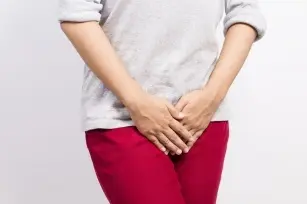
Vaginal infections in some women occur regularly, most often during periods of reduced immunity or changes in conditions (e.g. during travel). Symptoms are usually itching, burning and profuse discharge. The discharge, which should not raise our doubts, is odorless, transparent and slippery to the touch, and any deviation from the norm may signal that an infection is developing. Can it be cured on its own and why do infections recur so often?
Quick treatment of an infection of the intimate area is very important, because neglect can lead to inflammation of other organs – appendages, uterus or fallopian tubes. This problem usually occurs in women taking antibiotics, suffering from other conditions infections (e.g. throat, bladder), pregnant women, and during hormonal changes (such as menopause). Sexually active women are also much more likely to get sick, because then various types of bacteria get into the vagina more often.
In addition to these causes of recurrent vaginal infections, there are also excessive exposure to stress, nervousness, mental tension (all this contributes to lowering the body’s natural immunity), and inadequate or insufficient hygiene of the intimate area. You should take care of it especially during menstruation, because blood additionally weakens the “defense systems” of the vagina.
Treatment of infection. Is a visit to the doctor necessary?
Definitely yes. The longer you delay, the worse it gets. Bacteria, although sometimes temporarily dormant with home remedies, will attack again over time. The medications your gynecologist prescribes will depend on the cause of your condition. These are usually antibiotics, ointments to lubricate the intimate area and sulfonamides. The treatment usually lasts about 7 days, and after the end of the treatment it is good to visit the doctor again to see that infection she was completely cured.
Of course, the symptoms of infection can be alleviated until you see a specialist. For this purpose, avoid perfumed liquids for washing intimate areas, and instead focus on special liquids with a low pH (3,5), washing the vagina towards the anus (doing it the other way around, we can transfer bacteria in its area to the vagina). Remember that washing too often also weakens the natural environment of this part of the body, so do it no more than twice a day. Finally, wipe the intimate area with a specially designed towel.
It is important to wear cotton underwear that is breathable. For the period of treatment, forget about thongs and artificial materials or lace. If you use tampons during menstruation, change them every few hours to prevent overgrowth of bacteria. It is good to supplement your diet with dairy products that contain probiotics, i.e. beneficial bacteria. You will find them in yoghurts, kefirs, buttermilk, cottage cheese. Their increased consumption will prevent the development of mycosis. It is also important to give up sweets and sugars, as well as alcohol, because they are a “medium” for bacteria that cause infections.









